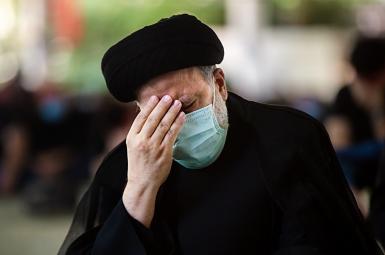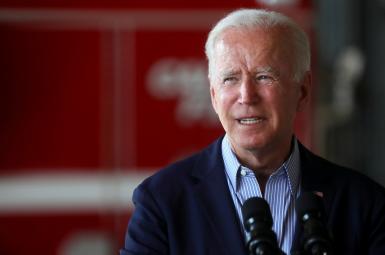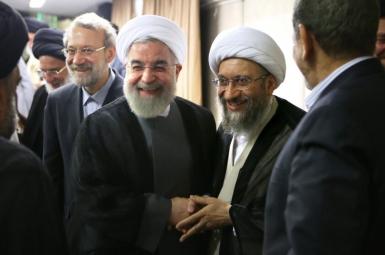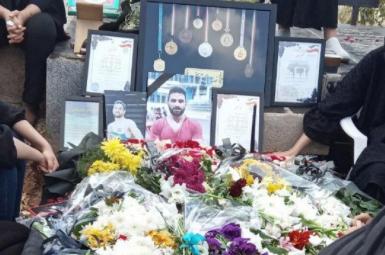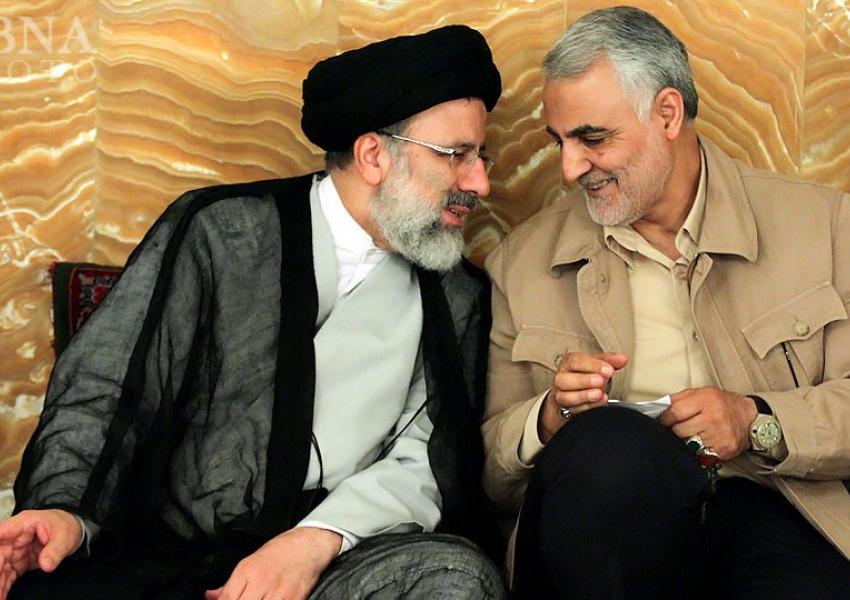
IRGC Offers Policy Advice To Iran's President-Elect Raisi
Iran's Revolutionary Guards have offered policy options to President-elect Ebrahim Raisi regarding Iran's domestic political issues, but they have probably deliberately remained silent on foreign policy. The IRGC's mouthpiece Javan newspaper featured three articles on Tuesday about the June 18 presidential vote. Two of the articles directly addressed Raisi.
One article simply thanks and praises him for saying "No," in response to a question by a Russian reporter who asked Raisi during a news conference on Monday whether he would be willing to meet with US President Joe Biden.
The second article puts forward four policy options for Raisi, one of which expresses a concern shared by Iran's embattled reformists.
Noting that Raisi has a difficult task ahead of him during the next four years, the IRGC's newspaper advises that he should leave criticism of the outgoing administration's past performance to the media and experts and not get involved in finding faults in the Rouhani government’s policies and performance.
The daily asked Raisi to issue a directive to his administration's officials to forget about the past and not to agitate the public. Javan reminded that all administrations are part and parcel of the entire political system.
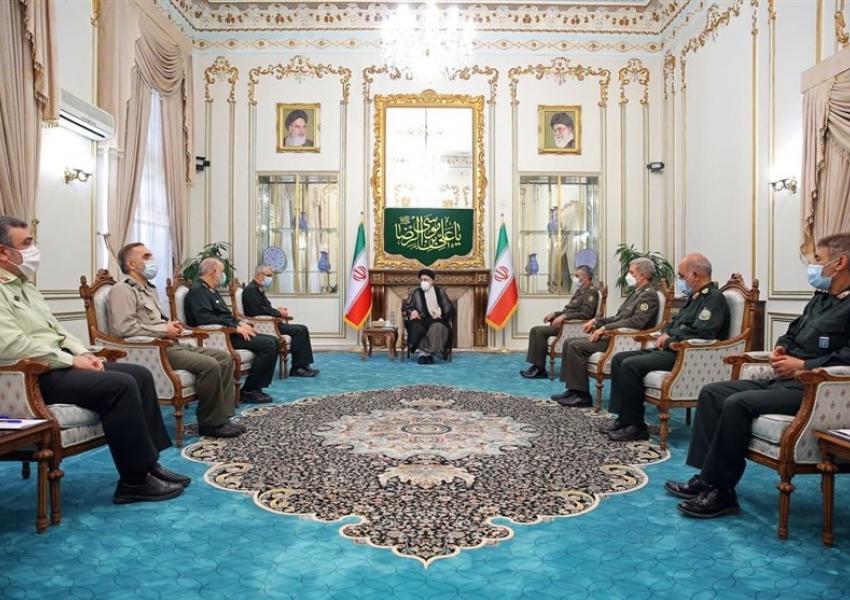
Hardliners tirelessly attacked the Rouhani administration for four years, inevitably drawing the public’s attention to the shortcomings of the regime itself, which may have played a role in the disillusionment and apathy clearly exhibited during the election. For the first time in the Islamic Republic less than 50 percent took part in presidential elections. However, people close to IRGC and its media were the most vocal in attacking Hassan Rouhani and his government for four years.
The IRGC's second advice to Raisi was about those who have gathered around him hoping to win a position in the next administration. The article reminded Raisi that he is an independent political figure who is not indebted to anyone. This is exactly what Raisi said in his first address to the nation and repeated during the news conference on Monday.
He made it clear that "with all due respect for all political figures, groups and parties," he "entered the election as an independent candidate and is not indebted to anyone other than the people." This was perceived as a message from Raisi to politicians and political groups who wanted a share of the political power.
Although most hardliners backed candidate Raisi, but first and foremost he had the backing of Supreme Leader Ali Khamenei, and everyone knew it.
The third policy option offered to Raisi was not to look for scapegoats for his failures and shortcomings in the way previous administrations did "by blaming the state TV, the IRGC, the Judiciary, the Majles, the media or other institutions for problems they haven't been able to solve."
Do not say, "They do not let me work," as your predecessors did, advises Javan. The daily also warned the president-elect against getting entangled in the web of the “outdated” reformist-principlist dichotomy.
The final policy option to Raisi was a concern shared by Iran's reformists. The IRGC suggested that Raisi should bring his likeminded individuals close to reform-minded and moderate politicians and work with them. The policy option suggested that the younger generation of all political factions are capable enough to help the government and make the Raisi administration proud.
The policy option addressed a concern expressed by reformist media and politicians during the past days following the election. For instance, former reformist lawmaker Daryoush Ghanbari said on Monday that Iran's reformists expect Raisi to form a non-factional cabinet. He said he believed Raisi's promise about being a non-factional and independent politician.
Javan newspaper suggested that Raisi should save the scientific, cultural and political potential in Iran that has been victimized by factional infighting during the past years.

